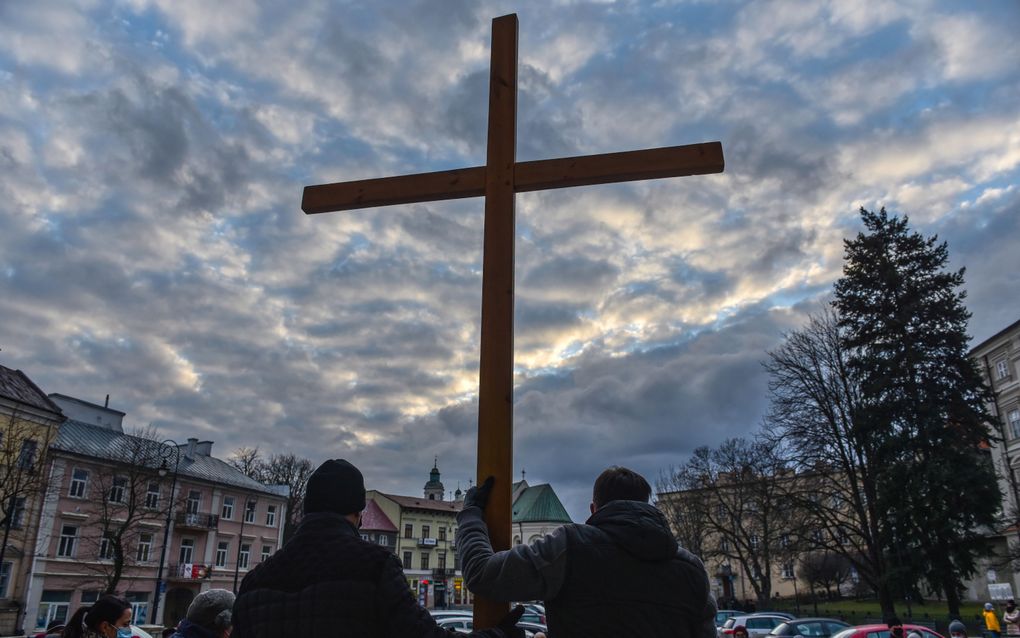Unbelief is growing among the Poles
30-11-2021
Central Europe
CNE.news

Catholics carry a wooden cross as they attend the Stations of the Cross procession through the streets in Lublin, eastern Poland, 19 March 2021. Photo EPA, WOJTEK JARGILO
Central Europe
The number of Poles who consider themselves religious remains high. However, the percentage of Poles regularly practising religion has decreased significantly. Among young Poles, the percentage of non-believers is considerably higher than the average.
That is the conclusion of CBOS, Poland's state research agency, which looked at religious belief and practices data from 1992 to 2021. Notes from Poland writes about it.
In 1992, 94 per cent of people in Poland professed themselves to be believers. This year, that figure still stood at 87 per cent, with just over 12 per cent of people describing themselves as non-believers.
Yet when it comes to practising religion –which in Poland nearly always means Christianity, particularly Catholicism– the proportion who do so at least once a week fell from 69.5 per cent in March 1992 to 43 per cent in August 2021. Almost one quarter (24 per cent) now say they never practise.
Young Poles
The picture is different among young Poles. CBOS found that, among people aged 18-24, religious attendance fell from 69 per cent in 1992 to 23 per cent today. Over one-third of the young (36 per cent) never practise religion.
CBOS notes that the process of abandoning religious practice has accelerated since May 2020. During that period, the pandemic led to limits on the numbers allowed in churches (though, unlike in many other countries, places of worship never closed entirely in Poland). According to CBOS, religious attendance has also dropped significantly amid revelations of child sex abuse in the Catholic church.
"Changes in declarations of faith occur very unevenly between successive age cohorts," concludes CBOS. "They are negligible in the grandparents' generation (seniors and baby boomers), minimal in the parents' generations (the 'Solidarity' generation and Generation X), significant in millennials, and extreme in the youngest cohort."


